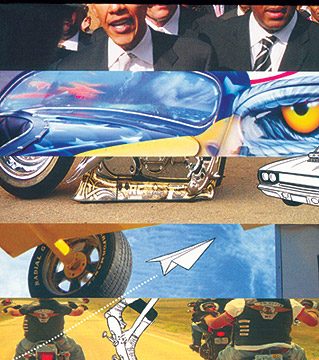Dilip D’Souza drives 10,000 miles across the continental US looking for America “through an Indian’s eyes” and encounters a vast smorgasbord of colourful characters and unusual experiences. He communes with Christian bikers in South Dakota, meditates at the Civil War memorial in Shiloh, Tennessee, tags along with volunteers in New Orleans post Hurricane Katrina, and much more. En route, he channels corresponding experiences from his travels across India: Katrina maps to the 2001 cyclone in Orissa, Shiloh reminds him of Kargil. In Roadrunner, he reports on his travels, threaded by the desire to root out the meaning of nationhood and patriotism in these two vastly different democracies.
As a traveller, D’Souza shows a bracing mix of wanderlust and an active social conscience. As a writer, he is scattered, full of breathless epiphanies and often clawing at arguments he admits don’t work, and never rising above the banal. The voice you hear is needy, demanding attention without earning it. And the liberties taken with the language don’t help.
In able hands, the chapter on the idea of idyllic rural beauty hiding terrible war-related tragedy could have soared. While trying to track down the family of an American soldier killed in Iraq, D’Souza thinks about his time in rural Himachal Pradesh with the family of an Indian soldier killed at Kargil. Out of this promising material he distils out “two truths”. “One, if you get off the major roads, there’s quiet beauty to be found. Two, in wartime, you’re that much more likely to run across the tragedy of death in battle.” This baffling disconnect between the focused sensitivity of the search and the stark banality of the conclusions dominates the book.
Like all serious travellers, D’Souza travels to gain currency into himself. When the reader is successfully recruited into that search, even a shoddy travel diary can blossom into a good travel book. Roadrunner: An Indian Quest in America, sadly, never does.




